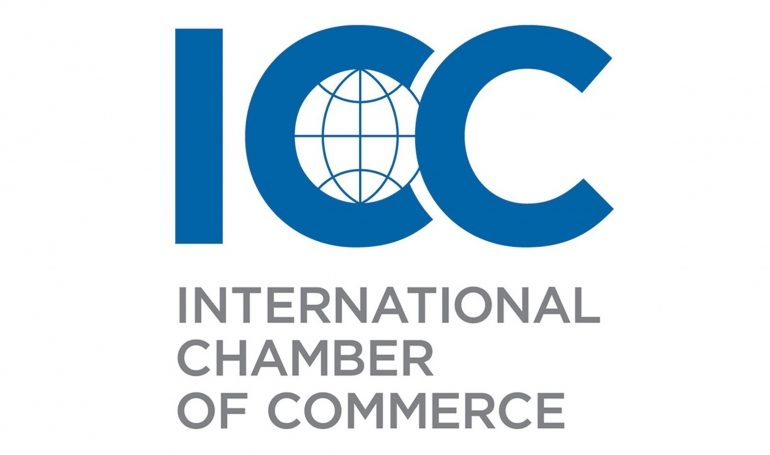The novel coronavirus (COVID-19) pandemic is an unprecedented health and economic crisis, affecting the lives and livelihoods of workers, as well as the continued operations of businesses globally. Micro-, small- and medium-sized enterprises (MSMEs) and their workers, as well as entrepreneurs and the self-employed, are among the hardest hit.
It is imperative that urgent and decisive action is taken by all stakeholders to combat the economic repercussions of this pandemic and safeguard the current and future functioning of the global economy.
MSMEs form the backbone of the global economy, representing about 90% of businesses and accounting for more than 50% of employment worldwide. The International Chamber of Commerce (ICC), the institutional representative of more than 45 million companies in over 100 countries, has launched a campaign to “Save Our SMEs”, with an immediate focus on bringing attention to the scale of the effects of the pandemic on MSMEs, ensuring that emergency measures and stimulus packages reach small businesses and their workers at the speed and scale required, and providing tools to MSMEs to help them navigate this difficult period.
As part of this campaign, ICC has released a call to action encouraging governments to ensure that stimulus efforts flow rapidly into the real economy and provide direct and immediate support to MSMEs and their workers to ensure their continued operation.
Given the cross-border nature of supply chains, such stimulus and safeguard measures should be taken in a coordinated manner at both the national and international levels. Countries around the world are implementing economic and fiscal policy stimuli, including emergency tax measures to support their economies under the COVID-19 pandemic.
In this respect, ICC highlights a number of key tax measures governments can take to Save Our SMEs and relieve cash flow stress during the crisis period.
1.SHORT-TERM MEASURES TO REDUCE COMPLIANCE BURDENS.
FLEXIBILITY IN EXTENDING DEADLINES FOR TAX FILING/PAYMENTS
-Small businesses granted an extension for filing a tax return and for filing and paying local taxes (e.g. Republic of South Korea, up to nine months for filing tax return and up to one year for filing and paying local taxes; India – deferred filing with no interest or penalties charged)
2. MEASURES TO INCREASE SHORT-TERM LIQUIDITY OF BUSINESSES.
A- DEFERRAL OR WAIVING OF TAX PAYMENTS – BOTH DIRECT (CORPORATE INCOME TAX) AND INDIRECT (VAT) TAXES
-Deferral of VAT tax payments at least two to three months without penalties (e.g. Chile, Cyprus, Peru)
-Exemption of VAT payments for small businesses within a determined turnover threshold (e.g. Korea)
-Postponement of CIT payments (e.g. Brazil, Peru, Morocco: three-month deferral of tax payments)
-Deferral of all taxes and social security contributions (e.g. Kazakhstan)
The extent to which businesses and consumers will benefit from such relief measures will depend on the current structure of a country’s VAT, including VAT exemption thresholds, standard and reduced VAT rates and the VAT base.
B- FLEXIBILITY MEASURES FOR TAX DEBT PAYMENTS
-Flexible payment agreements with no interest or penalties, such as an option to pay the VAT payments in 6-12 monthly installments at 0% interest, applicable to small businesses with turnover not exceeding a determined threshold of sales (e.g. Chile, Cyprus, Peru)
C- EXPEDITED/ENHANCED TAX REFUNDS
-Accelerated tax refund for MSMEs (e.g. Chile, tax refund in April 2020 instead of May 2020)
-Provision to claim back preliminary taxes paid, or set it off against future losses (e.g. Sweden)
D- TEMPORARY TAX REDUCTIONS
-Reduction in the VAT payable by small businesses within a determined threshold of turnover (e.g. Republic of South Korea)
-Reduced CIT rate for small businesses (e.g. Bosnia and Herzegovina, Korea)
E- DEFERRAL OF WITHHOLDING, PROPERTY TAXES AND OTHER EXPENSES
-Deferral of the payment of property taxes, with 0% interest rate, applicable to businesses with turnover below a determined amount. Option for the delayed payment to be paid in installments (e.g. Chile)
-Deferral of payment of withholding taxes on personal income and suspension of utility expenses (e.g. France)
F- EXPENSE DEDUCTIONS ON CORPORATE INCOME TAX
-Possibility for MSMEs to claim a deduction on salary payments (e.g. Thailand)
-Possibility for MSMEs to claim a deduction of interest expenses incurred (e.g. Thailand)
-Possibility for MSMEs that have less than a determined number of employees to reclaim
Statutory Sick Pay (SSP) paid for sickness absence of employees in relation to COVID-19 (e.g. United Kingdom)
G- TEMPORARY REDUCED/NO TAXES ON ESSENTIAL PRODUCTS
-Reduced or 0% tax on essential products such as medical goods and hospital supplies for the duration of the crisis period (e.g. Brazil)
H- CASH-FLOW ASSISTANCE FOR MSMEs
-MSMEs with aggregated annual turnover under a determined threshold could be eligible for payment of cash flow assistance/cash grants, delivered as a credit in the activity statement system (e.g. Australia, Cook Islands)
-Temporary payment by the government of taxes and social security contributions for employees of small businesses (e.g. Bosnia and Herzegovina)
-Specialized fund to provide immediate assistance to small businesses (e.g. France, South Africa)
3. FURTHER TAX MEASURES AIMED AT BOLSTERING THE ECONOMY POST COVID-19
Assistance for MSMEs may be required for some time after the health effects of the pandemic have subsided, dependent on how quickly the economy returns to normal. Even with such measures, personal savings and corporate reserves are likely to have taken a hit; levels of personal and corporate debt are likely to be higher, which will inevitably have consequences for MSMEs in particular.













